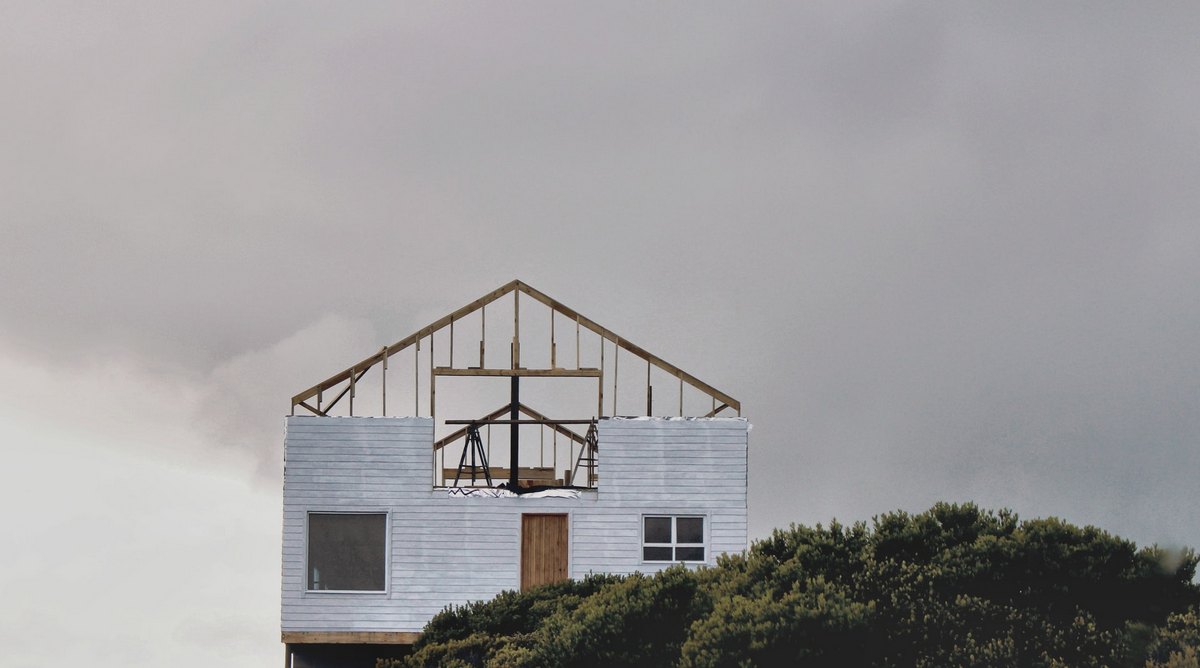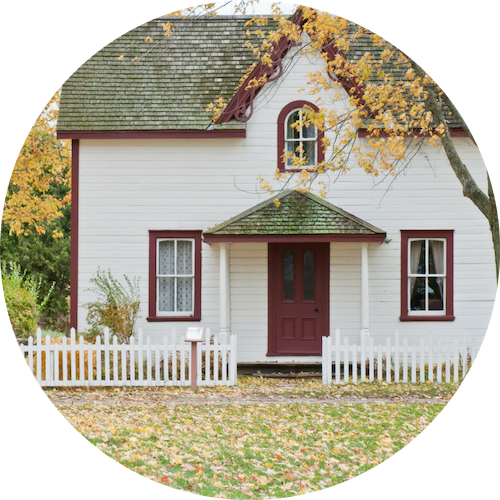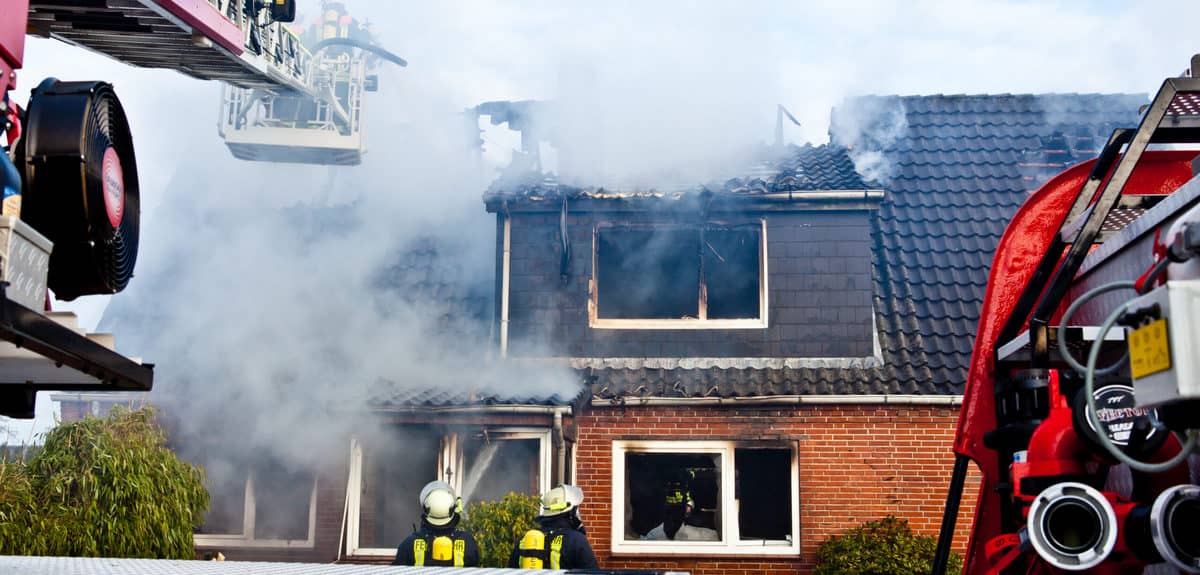The Ultimate Guide to Hazard Insurance

An important piece of the home buying puzzle includes estimating your PITU (principal, interest, taxes and insurance) and what type of insurance you’ll need. One of the policies you may be necessary to purchase is hazard insurance. Although it’s required for many places, some people aren’t aware that this coverage exists or why they might need it. In case you’re confused about hazard insurance, this post will show you everything you have to know.
What Is Hazard Insurance?
It’s coverage that protects a property owner against damage caused by severe storms, hail/sleet, fires, or other natural events. As long as the particular weather event is covered within the policy, the homeowner will compensate for the cost of any damage incurred. Standardly, the homeowner will be obligated to pay for a year’s worth of premiums when buying the policy. Still, this practice will depend on the exact details of the policy.
How It Works
Hazard coverage is a subsection of a homeowners insurance policy that protects the main dwelling and other nearby structures, like a garage. To be prepared for any event, homeowners should be sure that specific, common hazards are covered in their insurance policy.
The amount of hazard coverage required depends on what it would cost to replace the home in case of a total loss. This amount may differ significantly from the property’s value on the current real estate market. Policies are usually written for one year and are renewable.
Homeowners can often elect to increase the hazard coverage of their policy. It’s much better to pay the upfront costs of an extra hazard policy than to deal with the associated medical and legal issues out-of-pocket. As serious weather events become more commonplace across the USA due to climate change, improved hazard insurance may become required for more property owners.
What Does Hazard Insurance Cover?
This type of coverage may cover hazards, including:
- Fire damage;
- Lightning;
- Hail;
- Damage;
- Vandalism;
- Theft;
- Fallen trees;
- Explosions;
- Vehicles that run into your home.
It’s crucial to remember that not all insurance policies are equal. Make sure to read your policy or check with your insurer to learn what risks may or may not be covered by your insurance.

What Does Hazard Insurance Not Cover?
Homeowners hazard insurance won’t cover the structures on your property and the personal property within it, if a natural disaster strikes. Most won’t cover floods or earthquakes. So, if the earth shifts beneath your home, which causes a minor flood and pipe burst, hazard or flood insurance won’t cover it.
Related Content
- Crucial Things You Should Know About Homeowners Insurance Policy
- Fire Insurance Coverage – Definition, Coverages, and Cost
- Do I Need an Earthquake Insurance Policy?
- Flood Insurance – To Buy or Not to Buy?
- Property and Casualty Insurance – Protect Your Things from Perils and Accidents
- All You Have to Know About Landlord Insurance
- 100% Covered Guide to Liability Insurance
- Umbrella Insurance – An Extra helmet from Excessive Costs
Who Should Get Hazard Insurance?
Everyone with a homeowners insurance policy automatically has hazard insurance, but this sort of coverage is more valuable to householders in certain areas. Specifically, homeowners in states with a higher risk of natural disasters are more likely to file a hazard insurance claim. In areas subject to particular dangers – earthquakes and wildfires in parts of California, for example – hazard policies may not insure against them unless you pay extra for a supplement on your coverage.
Property owners in states hit by hurricanes, such as Florida, Texas, New Jersey, North Carolina, and Louisiana, should have home hazard insurance to protect against hurricane-related damage. Additionally, homeowners in midwestern states, including Kansas, Nebraska, and Oklahoma, should buy this policy to cover their homes in the case of a tornado.
When I Need Hazard Insurance?
Having homeowners insurance to cover you against hazards isn’t a legal requirement. However, this doesn’t mean you’re free to decide whether you want to buy it or not. For instance, if you take out a mortgage to purchase a home, the lender will require you to have some hazard insurance level. The mortgage is secured versus the value of the property. Damage from a fire would reduce that value, so lenders insist on insurance against these types of hazards.
Therefore, the lenders will often want the first year of premiums paid up in advance. Additionally, if your lender maintains an escrow account on your behalf, you may be required to pay additional months’ premiums.
Is Hazard Insurance The Same As Homeowners Insurance?
Yes, when your mortgage firm tells you to get hazard insurance for your home, what they mean is a homeowners insurance policy. However, there are other kinds of insurance products — like dwelling fire policies for landlords — that could qualify as adequate coverage and secure you a home loan. But bear in mind that dwelling fire policies only protect the home structure against covered hazards. In case the home is your primary residence, you’ll need a complete homeowners insurance policy.

How Much Hazard Insurance Do I Need?
You should have enough hazard coverage so that you would be able to rebuild your home if the above-mentioned perils destroyed it. Remember that this may be different from your home’s market value. To pinpoint the amount of hazard insurance you need, you’ll have to consider construction and other costs connected with rebuilding in your area.
If your home is destroyed or damaged from something that’s not a named hazard — for example, water damage resulting from a flood. In that case, you should talk to your agent about supplemental coverages, called amendments, that can expand your policy for disasters that aren’t named in the base policy.
How Much Does Hazard Insurance Cost?
You don’t pay for this insurance as a separate policy. Instead, it’s implemented into the premium for the broader homeowners policy. How much the hazard coverage beefs up the premiums for the policy varies based on factors, such as:
- The age and value of the home;
- The materials the home is made of;
- The type of policy limit you select;
- The policy deductibles you opt for;
- Whether the home has certain security features.
FAQs
Basic hazard insurance doesn’t cover flood damage. If your residence is in a flood zone or you’re concerned about flooding damage, you’ll want to talk to your agent about buying additional flood insurance. Hence, you can be completely protected in the event of water damage from flooding.
Most typical natural disasters are covered by this insurance, including fire, lightning, wind, explosions, snow damage, and more. Because there are variations from one company to another, give your policy a careful reading to find out precisely what you’re covered for.
Hazard insurance policy is part of your homeowners’ coverage, so you’ll make sure your homeowners’ policy is as comprehensive as possible. Not all policies are the same, though. The best way to handle it’s to ask yourself what you need covered and then ensure any plan you consider includes it.
If you live in a region that’s prone to earthquakes, landslides, or mudslides, or you’re in a floodplain, you may need to buy supplemental coverage on top of standard hazard coverage. Flood insurance and earthquake insurance are both sold through most private insurance agencies.
Unless you’re able to buy a home with cash in advance, you’ll be obligated to your mortgage lender’s requirements. Every mortgage lender will request you to get homeowners coverage. According to the risk factors linked with the particular home, you may be beholden to add hazard insurance, too. The mortgage lender will make it clear if you have to add hazard coverage.
Insurance rates regularly go up to keep up with inflation to cover the cost of repairing your home. Your rates may also increase after an insurance inspection that may determine your home needs upgrades. If your neighborhood has experienced the effects of climate change-driven intensified fires and storms, the hazard insurance premiums may go up to cover the rising costs of repair.
5-Star San Diego Hazard Insurance
Searching for hazard insurance in San Diego, CA? Look no further! H&M Insurance can help keep you protected when the unexpected strikes. We provide reliable and affordable homeowners insurance that can help you and your family in the event of natural disasters, water backup damage, theft, and more. Call our specialists at (619) 296-0005 to see how you can benefit from our agency. We are here to help get you the coverage you need.
